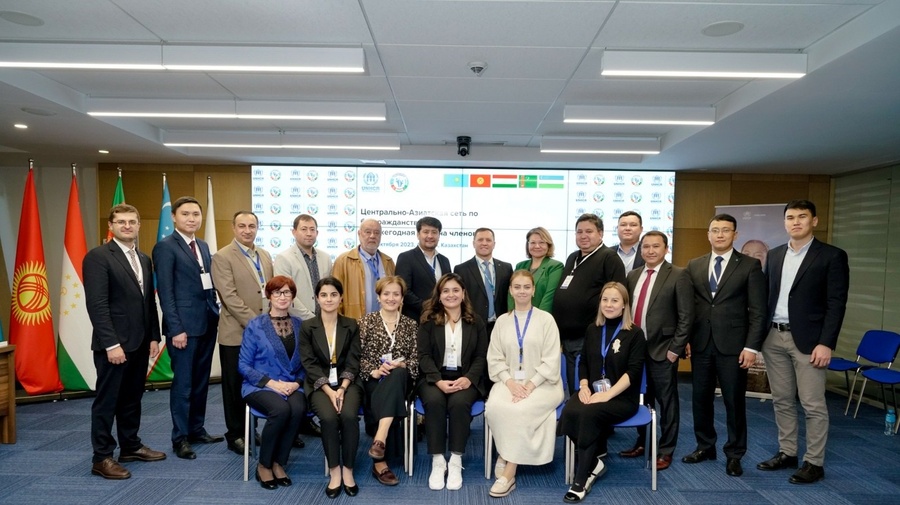Central Asian Network on Statelessness prepares for GRF 2023
Central Asian Network on Statelessness prepares for GRF 2023

On 25-27 October 2023 the Central Asian Network on Statelessness (CANS) with support of UNHCR, the UN Refugee Agency, held its 7th annual meeting in UN Plaza, Almaty.
As members of CANS, civil society organisations and academia from Kazakhstan, the Kyrgyz Republic, Tajikistan, Turkmenistan, and Uzbekistan share best practices in the reduction and prevention of statelessness. Gathered at the UN Plaza in Almaty, CANS members discussed joint action to consolidate and accelerate this progress also to support states in achieving the goal of the 2030 Agenda for Sustainable Development, “to leave no one behind.”
“This meeting marks the 9th anniversary of the global #IBelong campaign. Considering that there is only one year left till the end of the campaign in 2024, the Central Asian Network on Statelessness has a unique opportunity to demonstrate its best practices to other regions in the world,” said Dumitru Lipcanu, UNHCR Deputy Representative.
One of the objectives of the CANS annual meeting was also to formulate pledges for the second Global Refugee Forum (GRF), the world’s largest international gathering on refugees, which will meet in mid-December in Geneva.
At the midpoint of the #IBelong campaign in 2019, UNHCR convened a High-Level Segment on Statelessness that provided an opportunity for States, including those from Central Asia, to make pledges on resolving statelessness, which were fed into the first GRF in December 2019.
Thanks to these GRF pledges by Kazakhstan, the Kyrgyz Republic, and Turkmenistan, thousands of formerly stateless persons or persons of undetermined nationality have had their nationality confirmed, and the risks of statelessness have been reduced.
While states are responsible for laws and practices needed to resolve statelessness, other stakeholders – UN, international organisations, civil society, academia and stateless people themselves - have roles to play in supporting these efforts. Collaboration and commitments remain important to eradicate statelessness.
“Granting nationality is in the hands of governments. But we as CANS members, representing civil society and educational institutions, can also contribute to joint efforts to ensure everyone’s right to a nationality and consider pledges for GRF that can provide additional guidance for our countries in the area of ending statelessness,” said CANS Coordinator Azizbek Ashurov, Nansen Award laureate for his support to the Kyrgyz Government in resolving statelessness in 2019.
During their annual meeting, CANS members discussed to strengthen legal assistance to stateless and undocumented people, to advocate accession to the statelessness conventions, to improving national legislation and to develop new capacity building initiatives.
The 7th annual meeting was also an opportunity for CANS to welcome new members from Kazakhstan, the Kyrgyz Republic and Uzbekistan: including the Association of Legal Clinics from the Kyrgyz Republic, KIMEP University from Kazakhstan and the Society of International Human Rights Defenders from Uzbekistan. Since it was established in 2016 CANS has now grown to eleven members from civil society and educational organisations of Central Asia.
As of September 2023, around 41,400 people were known to be stateless across Central Asia. With stateless people continuously identified, the true number is believed to be higher. In 2024, UNHCR, together with CANS and other partners, will continue supporting the efforts of Central Asian States to accede to both Statelessness Conventions, eradicate statelessness within the #IBelong timelines, develop and strengthen statelessness determination procedures, and align national legislation and practices with international standards for the prevention of statelessness.

